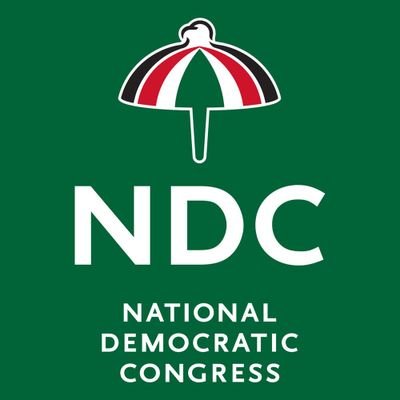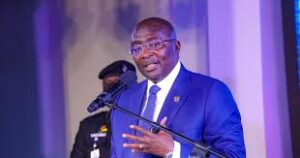33 Years of the NDC: A Milestone Celebration

The National Democratic Congress (NDC) was formed following the lifting of the ban on political parties, marking a critical step in Ghana’s transition to democracy. Over the past 33 years, the NDC has emerged as one of the two dominant political parties in Ghana’s Fourth Republic, successfully winning five of the nine presidential elections held since 1992 (1992, 1996, 2008, 2012, and 2024). The party has also spent equal time—16 years each—as the ruling party and the main opposition.
Its chief rival remains the New Patriotic Party (NPP), and the political rivalry between these two parties has defined much of Ghana’s contemporary democratic landscape.
As the NDC marks its 33rd anniversary, I offer three key reflections.
1. Battling the Anti-Intellectual Stereotype
I vividly recall the 1992 election campaign when the late President Jerry John Rawlings was introduced as the NDC’s candidate. Watching the campaign event on television with my family, the stadium was packed, and the energy was palpable. Yet, a cousin remarked dismissively in Twi that those with formal education did not support the NDC.
This dismissive stereotype—that the NDC is not a party for intellectuals—has been a persistent narrative, often amplified by political opponents. It’s a simplistic characterization that fails to recognize the party’s wealth of members and leaders who are experts in law, political science, economics, literature, science, and history.
Stereotypes like these, whether fair or unfair, can shape public perception and political discourse. Changing such narratives requires conscious effort from those who are stereotyped and is crucial to fostering a more nuanced understanding of political parties and their contributions.
2. Shifting Political Preferences Over Time
The Afrobarometer survey offers fascinating insights into Ghanaian political affiliations. Respondents are asked if they feel close to a political party, and if so, which one.
In the survey’s first round in 1999, the NDC led party preference with 57% to the NPP’s 38%. However, over the next seven rounds conducted between 2005 and 2022, the trend reversed, with the NPP enjoying an average preference lead of 55% to the NDC’s 35%. Despite this, the NDC managed to win two elections during that period, highlighting that expressed party preference does not always align directly with election outcomes.
Interestingly, the 2024 survey showed a shift, with the NDC regaining a slight lead in party preference at 45% over the NPP’s 41%. This could be a reflection of the political climate in the run-up to the elections, and it remains to be seen if this trend will hold in future surveys.
3. The NDC’s Contribution to Ghana’s Democratic Development
As one of Ghana’s principal political forces, the NDC has played an indispensable role in strengthening democratic institutions and practices. The party has established a comprehensive political and administrative structure that fosters citizen engagement through regular internal elections, appointments, and the formation of affiliated groups such as youth, women, and student wings.
These activities have normalized political participation and helped cultivate a robust democratic culture. Moreover, the NDC’s involvement in the Inter-Party Advisory Committee (IPAC) has been critical in shaping electoral reforms. Key initiatives like the introduction of photo voter IDs, transparent ballot boxes, biometric voter registration and verification, and the sharing of voters’ registers with parties have enhanced election integrity in Ghana.
Though the party temporarily boycotted IPAC after the 2020 elections, it has since re-engaged, underscoring its commitment to upholding electoral processes that protect Ghana’s democracy.
Looking Forward: Navigating Political Polarization
In any multiparty democracy, partisanship is inevitable. However, the intense rivalry between the NDC and NPP has contributed to growing political polarization. As the NDC celebrates this important milestone, a vital question emerges: how can the party continue to offer vigorous political competition without deepening divisions within Ghanaian society?
Addressing this challenge requires mutual efforts from both the NDC and its main rival. Ghana’s democracy—like many others worldwide—would greatly benefit from a reduction in partisan acrimony, fostering a political environment rooted in respect, dialogue, and collaboration.






